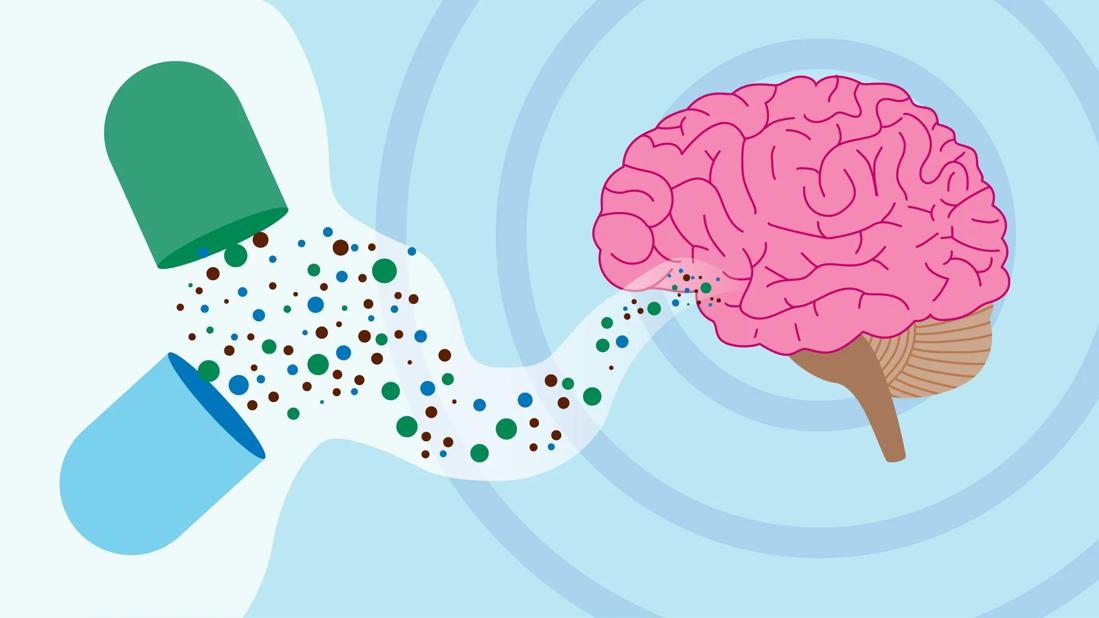Both medications are first-line treatments for depression and other mood disorders

Image content: This image is available to view online.
View image online (https://assets.clevelandclinic.org/transform/c57c5aed-3b1a-410a-a7e1-07cf62c0feba/broken-capsule-pellets-brain-1923533522)
Oversized open capsule with medication flowing toward an oversized brain
SSRIs may be the most prescribed antidepressant, but does that mean they’re somehow better than SNRIs ― another type of medication used to treat depression and other mental health conditions?
Advertisement
Cleveland Clinic is a non-profit academic medical center. Advertising on our site helps support our mission. We do not endorse non-Cleveland Clinic products or services. Policy
The two antidepressants work in similar ways after all, and treat some of the same mood disorders. It makes you wonder how the medications differ aside from one letter in their well-known acronyms.
Let’s break it down with psychiatric pharmacist Josh Maline, PharmD, BCPP.
Video content: This video is available to watch online.
View video online (https://cdnapisec.kaltura.com/p/2207941/sp/220794100/playManifest/entryId/1_fodp2r8i/flavorId/1_5f3sgelj/format/url/protocol/https/a.mp4)
Learn the difference between SSRIs and SNRIs.
Both SSRIs (selective serotonin reuptake inhibitors) and SNRIs (serotonin and norepinephrine reuptake inhibitors) regulate emotions by influencing chemical messengers in your brain known as neurotransmitters.
“By balancing these chemicals, they can help improve symptoms of depression and anxiety and maybe reduce feelings of hopelessness that someone may have,” says Dr. Maline.
But the medications take different routes to reach the same goal.
SSRIs increase your brain’s levels of serotonin, often called your body’s natural “feel good” chemical. The medication does this by blocking the reuptake (or absorption) of serotonin by nerve cells in your brain.
“That allows more serotonin to stay active in your brain, which helps improve mood and reduce feelings of anxiety or depression,” explains Dr. Maline.
But serotonin isn’t the only chemical in your brain, which brings us to how SNRIs work.
“SNRIs are very similar to SSRIs, but they affect two chemicals in the brain instead of just one,” clarifies Dr. Maline.
Advertisement
Like SSRIs, SNRIs increase serotonin levels by blocking reuptake. But SNRIs also boost levels of a second chemical, norepinephrine, to improve mood while also increasing energy and alertness.
Norepinephrine plays a role in your body’s “fight-or-flight” response to danger, too. It’s naturally released from your adrenal glands during stressful moments to jolt your body and senses into action.
SSRIs and SNRIs are both routinely prescribed to treat mood disorders. You’ll probably recognize some of the medications and brand names that fall under both classes of antidepressants.
Examples of SSRIs include fluoxetine (Prozac®), citalopram (Celexa®) and Sertraline (Zoloft®). SNRI medications include duloxetine (Cymbalta®) and venlafaxine (Effexor®).
Any medication comes with potential side effects. Different people respond differently to certain medications, too. But overall, SSRIs and SNRIs can both commonly lead to issues such as:
More serious concerns include a risk of suicidal thoughts or behavior.
SNRIs may sometimes worsen symptoms of anxiety, given the increase in norepinephrine. “We do need to be a bit more cautious with SNRIs because of that potential for a ‘fight or flight’ response,” Dr. Maline reports.
But in general, both SSRIs and SNRIs are pretty well tolerated.
When it comes to SSRIs versus SNRIs, one isn’t necessarily better than the other at treating depression or other issues. What works best for you depends upon … well, YOU and your needs.
“Both are first-line options for treating depression and anxiety,” says Dr. Maline, “but one might be a better option for you than the other based on your brain chemistry, as well as symptoms that you may be experiencing.”
It’s not unusual for someone to try a few prescriptions before finding what works best to treat issues like depression, anxiety, obsessive-compulsive disorder (OCD) or post-traumatic stress disorder (PTSD).
That could mean different versions of SSRIs or SNRIs, dosage adjustments or switching from one type of medication to the other, notes Dr. Maline.
Sometimes, doctors may even prescribe an SSRI or SNRI with another type of antidepressant, such as an NDRI (norepinephrine and dopamine reuptake inhibitors) to try to find the right combination.
And it may take a few weeks to two months to determine whether medications are working.
“Treatment is very individualized,” states Dr. Maline. “Two people can take the same antidepressant and have very different responses — not just from an efficacy standpoint, but in side effects, too. It can make finding the right medication very challenging.”
Advertisement
Dr. Maline also emphasized the importance of not relying solely on medications.
“Try to take a holistic approach, too,” he recommends. “Combing medications with therapy; getting adequate sleep and exercise; healthy eating; and stress management techniques have led to better outcomes for people.”
Advertisement

Sign up for our Health Essentials emails for expert guidance on nutrition, fitness, sleep, skin care and more.
Learn more about our editorial process.
Advertisement
Alcohol is a depressant and can interfere with your sleep, mood and more
Slight increases are somewhat common from either the medication or changed habits
Some medications may result in a few lost pounds, but weight gain is far more common
The medications target different chemicals in your brain to improve mood
A psychiatrist shares tips for going off your depression medication
OTC meds, rest, fluids and an anti-inflammatory diet can help you get through big and small weather changes
Going home isn’t always easy, but there are ways to ease any stress you might feel
Connecting with others, giving back and stepping away from social media can all help you cope
Although it could be used as a moisturizer, this new trend is not recommended
Communicating clear limits helps protect your time, energy and emotional well-being
High cholesterol can be genetic, but testing and treatment can lower your heart disease risk